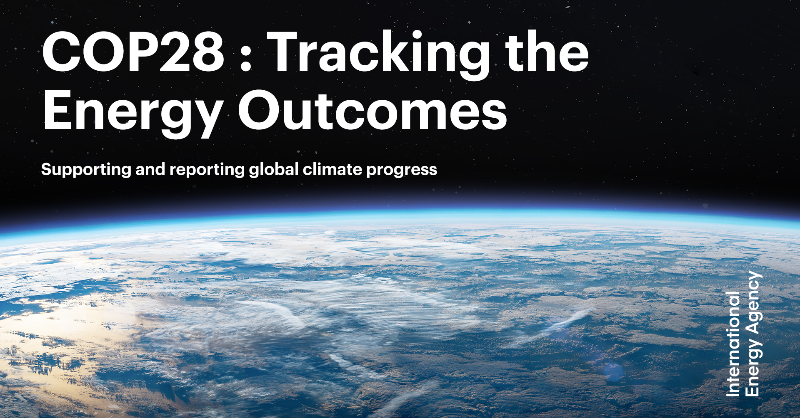Climate Investment Funds to Deploy Over $350 Million for Nature-Based Solutions Globally

The Climate Investment Funds (CIF), one of the world’s largest multilateral funds for climate action in developing countries, will finance nature-based solutions to the climate crisis in Egypt, the Dominican Republic, Fiji, Kenya, and Africa’s Zambezi River Basin Region, cutting across Zambia, Malawi, Mozambique, Namibia, and Tanzania.
Announced today at COP27, the decision reveals the first set of countries and regions to benefit from CIF’s Nature, People, and Climate (CIF NPC) investment platform, launched in June 2022. To start, several sovereign donors including Italy, the United Kingdom, and Sweden have pledged more than $350 million to capitalize CIF NPC, which pilots and scales transformative nature-based climate solutions in developing countries.
Recipients are seeking finance to support a wide range of initiatives, including efforts in Egypt to promote sustainable agriculture along the Nile River, mangrove cultivation to better protect Fiji’s coastal communities from storm surges, investments to reduce methane emissions from rice production in the Dominican Republic, and the restoration of 30,000 hectares of degraded wetlands in south-central Africa’s Zambezi River Basin Region.
Brazil, Ethiopia, Namibia, Rwanda, and Zambia will also receive support to prepare investment plans in anticipation of further CIF NPC contributions from developed nations.
CIF’s governing board chose the four countries and one region following a comprehensive selection process, informed by independent expert assessments on candidates’ potential for transformational change, private sector mobilization, and other metrics. Selected countries will begin preparing investment plans against available funding, with implementation expected to begin as early as next year.
CIF NPC will promote and protect natural environments known to be integral in addressing climate change by investing in sustainable agriculture and food supply, healthy forests, and resilient coastal systems. The program will also empower Indigenous peoples and local communities to lead climate action.
After the program was announced this summer, 55 emerging economies—one-third of the developing world—formally applied for CIF NPC funding. These countries span six continents and represent a population of more than 2 billion people.
Building on CIF’s nearly 15-year track record in climate finance mobilization, CIF NPC aims to take on one of the greatest climate challenges of our time: the destruction of nature and addressing the outsized carbon footprint of unsustainable land use. An estimated 23% of total human-caused greenhouse gas emissions come from agriculture, forestry, and other land use.
Partnering with multilateral development banks, CIF NPC will deploy resources to de-risk and scale investments in sustainable land resources and ecosystems across key sectors and geographies, opting for a “systems-level” rather than project-by-project approach. By design it supports both climate adaptation and mitigation objectives.
A key CIF NPC focus is enabling Indigenous and local communities to lead, implement, and shape climate action locally and around the world. It seeks to replicate CIF’s successful Dedicated Grant Mechanism for Indigenous Peoples and Local Communities (DGM), which provides direct financing to empower Indigenous peoples and local communities to sustainably manage natural resources, restore land access through initiatives such as land titling programs, and fight climate change through the application of local and traditional knowledge.
See related article: Climate Investment Funds Unlocks $1 Billion for Clean Power Move in South Africa and Indonesia
While changes in land use and land cover significantly worsen our climate crisis, climate change itself further stresses our natural systems. It accelerates land degradation and biodiversity loss, which has already declined 70% over the past 50 years.
Investing in nature is fundamental to human existence and prosperity. Sustainable agriculture and forest management, including measures such as agroforestry, could deliver over $2 trillion per year in economic benefits, generate millions of jobs in developing countries, and improve food security. At the same time, the restoration of forests, degraded lands, and coastal zones can help strengthen resilience to climate impacts.
……………………………………………………………………………………………………………
“We are thrilled to announce the first participating countries and regions in this new effort to invest in nature holistically, urgently, and at scale. At the Climate Investment Funds, we know few climate solutions are as effective, replicable, or cost-efficient as those we derive from nature itself. They prevent harmful emissions and safeguard communities from climate change impacts all at the same time. Together with partners, we are investing in the success of rural and Indigenous communities, sustainable supply chains, healthier coastlines, and climate-smarter food production. We need to turn the tide and this is an important step in that direction.”
Climate Investment Funds CEO, Mafalda Duarte
“We are very excited to have been selected for this program. As with the other CIF programs, Climate People and Nature has allowed us to create roundtables focused on our country’s climate goals and place them as a top priority for relevant decision makers. This specific program will help us strike a chord with our culture by allowing us to change the ways in which we produce our food to develop more sustainable and therefore more productive practices. For the Dominican Republic, as a small island developing state, mitigating the risks of a changing climate and achieving real food security independence can be within our reach, thanks to programs like this one.”
Dominican Republic – Minister of Agriculture Limber Cruz
“As a Small Island Developing State vulnerable to the impacts of climate change, Fiji is extremely delighted to be part of the Climate Investment Fund’s Nature, People and Climate Investment Program. We urgently need access to external financial support and capacity to aid build our resilience and address the effects of climate change on our social, economic, and natural systems on which we depend. These initiatives will help us unlock targeted climate finance for sustainable use and management of natural resources and ecosystems while working closely with vulnerable communities in Fiji.”
Fiji – Ambassador and Permanent Representative to the United Nations Dr. Satyendra Prasad
“In the effort to prevent the global negative impact of climate change, cost-effective strategies are needed to strengthen climate resilience while fostering economic prosperity. In this regard, it is crucial to address the communities’ vulnerability and the overall climate risk with adequate investment. Italy is proud to be an important contributor to the Nature People and Climate Investment Program of the Climate Investments Fund, fully consistent with the objectives of the Italian G20 Presidency in 2021. We support the main purpose of the Fund, scaling up the integration of nature-based solutions to climate challenges to help countries build resilience, in partnership with multilateral development banks.”
Italy – Minister of the Economy and Finance Giancarlo Giorgetti
“Climate change and biodiversity loss are interdependent threats that must be addressed together, especially in the developing world. Together with the Climate Investment Funds, we will scale up investment in nature-based solutions across emerging economies. CIF’s model empowers Indigenous peoples and local communities.”
The Netherlands – Climate Envoy H.R.H. Prince Jaime de Bourbon de Parme
“This award comes at the right time as the Zambian government has upscaled its resource mobilisation efforts to address the various challenges its people are facing due to climate change. We have high ambitions as a country and support from partners like CIF will be very important going forward. We look for mutually beneficial engagements quickly.”
Zambia – Minister of Green Economy and Environment Hon. Collins Nzovu
Source: Climate Investment Funds








